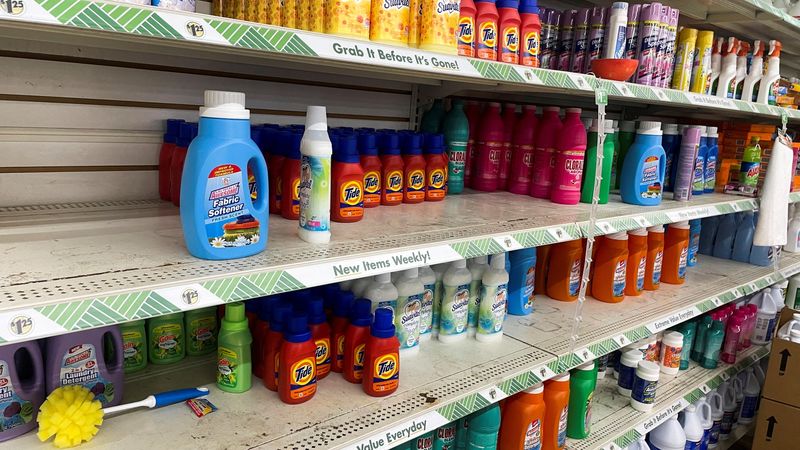P&G plans to downplay its corporate name in ads during Paris Olympics
2024.05.14 09:01

By Jessica DiNapoli
NEW YORK (Reuters) – What is missing from the Paris 2024 Olympics? A tear-jerking corporate advertising campaign from Procter & Gamble (NYSE:) saluting the mothers of athletes.
The consumer products maker, one of the world’s biggest ad spenders and a sponsor of the Olympics, is instead focusing its marketing at the Games on its individual brands including Pampers diapers, Gillette razors and Ariel detergent.
The move is a step-change for P&G, whose prior Olympics advertising campaigns emphasized the values of the Cincinnati-based company, struck an emotional chord and were among the company’s most successful by sales and views, according to the website of Wieden+Kennedy, the agency that worked on the commercials.
“In the past, we’ve had both a P&G and a brand focus, and this time we just really decided we’re going to go focus, not 100%, but much more prominently, on brands,” said P&G chief brand officer Marc Pritchard. “That’s what consumers that we serve are familiar with.”
Procter & Gamble has reduced its spending on Olympics advertising in the United States by 50% over the last several Games, after previously spending tens of millions of dollars with U.S. broadcaster NBCUniversal, Reuters reported last month.
The company is one of the biggest global marketers of consumer products by revenue, selling roughly $82 billion worth in its fiscal year ending June 30, 2023.
It spends about $8 billion annually on advertising.
Pritchard said that for the upcoming Games, P&G is launching advertising for more than 30 of its brands, more than ever before.
“Our message really is serving the Olympic and Paralympic athletes, their families and fans around the world,” he said. “There’s a bit of an everyday focus on it.”
For example, P&G marketing at European retailers will emphasize the idea that its products are “everyday champions” in household tasks, according to the company. The company’s biggest marketing push is in Europe because it is the host region for the Games, Pritchard said.
Sponsors of the International Olympic Committee (IOC), including P&G, pay upwards of an estimated $100 million for the right to use the famous Olympic rings in their marketing materials, according to the Reuters report.
P&G launched its first ever corporate advertising campaign highlighting the company rather than the household products it makes for the 2010 Vancouver Olympics, according to Wieden+Kennedy.
The global, multi-year campaign, called “Thank you, Mom,” showed the sacrifices mothers around the world make to help their children become Olympic athletes, and the lessons they teach them, like sportsmanship.
Sales of P&G products in the U.S., its biggest market, and Europe have been strong this year even as consumers face record levels of inflation. But lower sales in China have overshadowed those gains.








